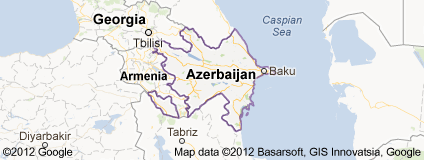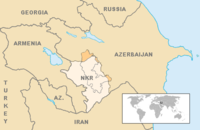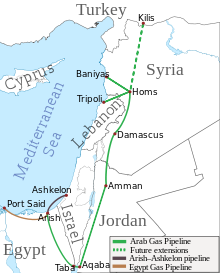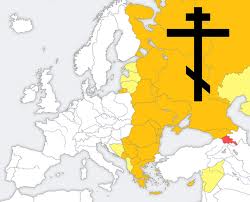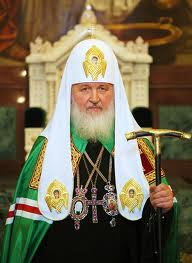 Iraq, Syria, and Lebanon have had almost 2000 years of Christianity. Will this soon end? Probably.
Iraq, Syria, and Lebanon have had almost 2000 years of Christianity. Will this soon end? Probably.
Iraqi Christians have had a long, and mostly peaceful, history in what is now Iraq. The first Christians in Iraq were converted by the early apostles. Church Tradition says that Thomas and Thaddeus were the founding apostles. It was a fruitful area for Christian missionaries because of the large number of Jews that were there. It is possible that Peter was there as well. It depends on how you interpret what Peter's first epistle means when it says that Peter was in "Babylon."
Here is what Wikipedia says about the recent history of Christian Iraqis.
Prior to the Gulf War in 1991, Christians numbered one million in Iraq. The Baathist rule under Saddam Hussein kept anti-Christian violence under control but subjected some to "relocation programmes". Under this regime, the predominantly Assyrian Christians were pressured to identify as Arabs. The Christian population fell to an estimated 800,000 during the 2003 Iraq War.
What is happening now?
 Half the Christian population has fled, with an estimated 330,000 to Syria and smaller numbers to Jordan. Some fled to Iraqi Kurdistan in northern Iraq.[5][9][10] Christians who are too poor or unwilling to leave their homeland have fled mainly to Arbil, particularly its Christian suburb of Ainkawa. 10,000 Iraqi Christians live in the U.K. led by Archbishop Athanasios Dawood who has called on the government to accept more refugees.
Half the Christian population has fled, with an estimated 330,000 to Syria and smaller numbers to Jordan. Some fled to Iraqi Kurdistan in northern Iraq.[5][9][10] Christians who are too poor or unwilling to leave their homeland have fled mainly to Arbil, particularly its Christian suburb of Ainkawa. 10,000 Iraqi Christians live in the U.K. led by Archbishop Athanasios Dawood who has called on the government to accept more refugees.
What we are seeing is nothing less than the end of Christianity in the Arab world. This is an unintended side effect of the various wars conducted by the West in the Middle East.
How is bringing Democracy to the Arab world working out? Not so well. Just look at Egypt. The Moslem Brotherhood is winning election after election. The army does not like this and so we just had a coup in Egypt. The Brotherhood is not happy, they think they won the election. They probably did.
A spokesman for Ahmed Shafik -- the last prime minister to serve under deposed President Hosni Mubarak -- said Tuesday that Shafik had won, state-run Nile TV reported. At a news conference, Mahmoud Abu Baraka said the campaign was certain it had the correct numbers. Mohamed Morsi, the Muslim Brotherhood candidate, claimed victory Monday. vowing to build an inclusive government. "No one's rights will be left out of it, and no one will dominate over the other," he said.
It may not actually matter who is elected:
Under an interim constitutional declaration released Monday, the military council retains the power to make laws and budget decisions until a new constitution can be written and a new parliament elected. The declaration says Supreme Council members "shall decide all matters related to military affairs, including the appointment of its leaders." The president has the power to declare war, it says, but only "after the approval of the SCAF." That move came days after an Egyptian court dissolved the parliament and the military council announced it had full legislative authority.
The Arab Spring, orchestrated by the West, has brought nothing but chaos in its wake.
I mentioned templates (the way we look at the world) and the necessity to reexamine them last Monday. What are the templates that we need to reconsider?
The first template is that democracy is good; dictatorship is bad. Are we sure that is what we think? If you were an Iraqi Christian living in a settlement camp in war-torn Syria, would you long for the days of Saddam? You might. If you were an Egyptian Christian, who are about 10% of the population, and saw what happened to Christians in Iraq, are you sure you would not welcome the military coup that just occurred? You might.
 There is another template that needs to be mentioned here as well. That template is that Arabs are Moslems. They usually are, but sometimes this is not true. The percentage varies from country to country: Egypt 10%, Syria 15%, Lebanon 50%, 200,000 Palestinians and many more scattered though the Arab world.
There is another template that needs to be mentioned here as well. That template is that Arabs are Moslems. They usually are, but sometimes this is not true. The percentage varies from country to country: Egypt 10%, Syria 15%, Lebanon 50%, 200,000 Palestinians and many more scattered though the Arab world.
The template Arab=Moslem is not true. (Note that Moslem=Arab is also an incorrect stereotype. Arabs are about 25% of Moslems worldwide.)
We will see on Friday why the fact that dictatorships, not having a religious ideology at their base, protect minorities is important to understand how Russia is acting in the Syria crisis.
 Tuesday, June 26, 2012 at 6:00AM
Tuesday, June 26, 2012 at 6:00AM  Propaganda
Propaganda 